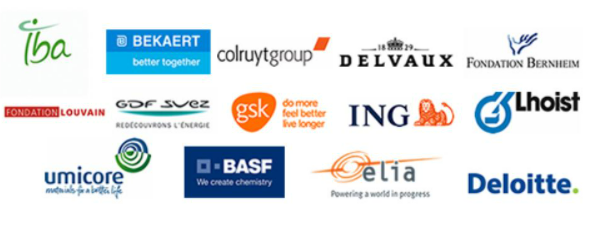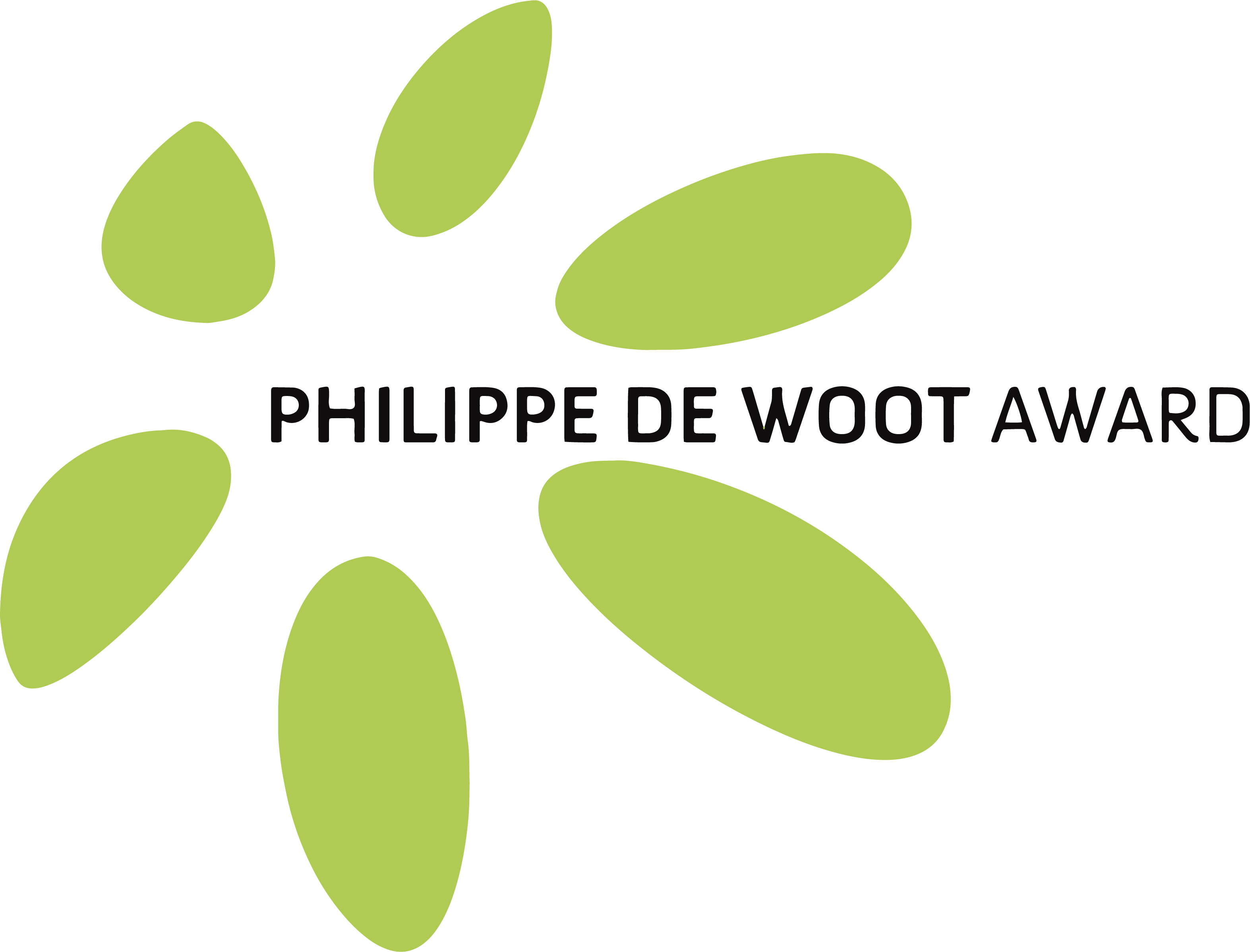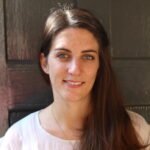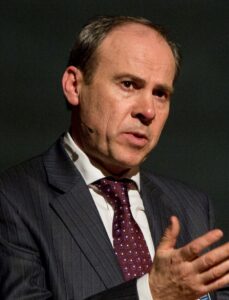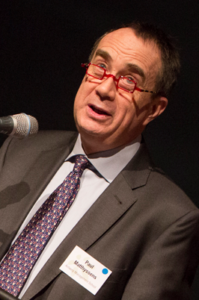The Philippe de Woot Award Ceremony 2016
Results
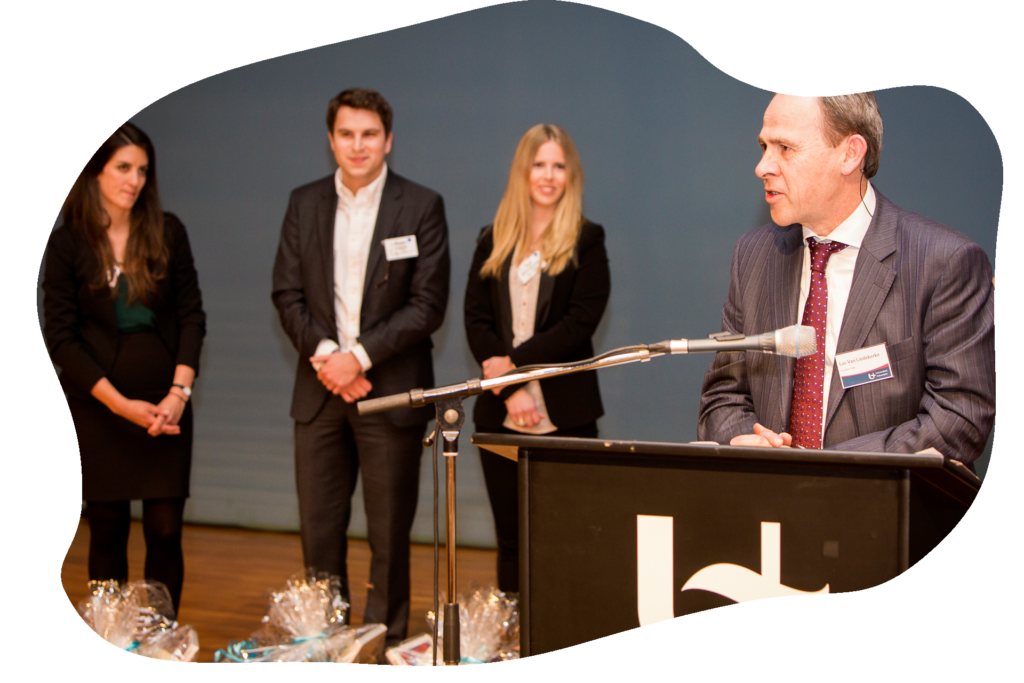
© Emmanuelle Duval
Antwerp Management School hosted the 4th Philippe de Woot International Award Ceremony.
This year’s Prize was awarded to LARA OBST, a graduate of the University of Twente (NL) and the Technical University of Berlin (GER), for her thesis entitled: « Utilizing the Business Model Canvas to Enable Sustainability Measurement on the Business Model Level. An Indicator Framework Supplementing the Business Model Canvas.
According to the jury, she delivered, in comparison to the other 3 finalists, the most relevant and innovative contribution to a better awareness of sustainable business.
« I am very happy that by winning the Philippe de Woot Award my master thesis can have a positive impact! First by donating to Ecosia’s tree planting program, the first German B-corp, and second by giving people access to my developed sustainability indicator framework, which might help them with identification, measuring and evaluation, thus increasing their social and environmental performance », says a happy Lara Obst.
The laureate wins a prize of 3,000 euros, half of which will be invested in an environmental or social project of her choice. Lara will invest this in Ecosia.
To view the program of the 2016 Philippe de Woot award ceremony

Organization and nominees
The 5 selected candidates
Applications have been examined in two steps:
- Annick CASTIAUX – UNamur, Belgium
- Christel DUMAS – ICHEC Brussels Management School, Belgium
- Manal EL ABBOUBI – Université Mohamed 5 Agdal, Morocco
- Kevin JACKSON – Solvay Brussels School – Belgium
- Mikael PETITJEAN LSM – UCLouvain/IESEG Management School, Belgium/France
- Valérie SWAEN – UCLouvain/IESEG Management School, Belgium/France
- Luc VAN LIEDEKERKE – Anvers University, Belgium
- Virginie XHAUFLAIR – HEC Liège – ULiège, Belgium
- Marianne BOGLE – CSR Sweden
- Kristoff DE BRABANDERE – Elia
- Sarah DEKKICHE – Foreign Trade Association-Europe
- Sabine DENIS – The Shift
- Christophe KONINCKX – Emulations-Durables
- Mikako LE LAY – Ernst & Young
- Dirk LEROY – Sustenuto
- Jan NOTERDAEME – CSR Europe
- Ann VANDENHENDE Spadel
- Tom VERLINDEN – BASF
- Gefei YIN – GoldenBee CSR


Nominees & finalists
Among the 63 submitted master’s thesis from 20 countries, the academic jury selected the 5 following dissertations. Then, the jury short listed 3 nominees.
Next to 2016’s winners Lara OBST, the other nominees were Cecilia GREGERSEN & Matthias TRISCHLER (Copenhagen Business School – Denmark) and Anna Sellen RUNEFJELL (University of Gothenburg School of Business, Economics and Law – Sweden).
To get a better insight about the different projects, the nominees have made a small video to explain and better illustrate their goals:
Utilizing the Business Model Canvas to Enable Sustainability Measurement on the Business Model Level. An Indicator Framework Supplementing the Business Model Canvas.
Lara OBST (University of Twente – the Nederlands and Techincal University Berlin – Germany)
This thesis investigates how startups, investors and other stakeholder can easily identify, measure and evaluate sustainability performance of companies on an all-embracing business model level.
Therefore, in a theoretical- and empiric exploration a set of 15 key Sustainability Performance Indicators (SPI) are discovered. These are mapped together with 20 experts from the field into a SPI Framework that supplements the business model canvas and serves as easy management tool for the three mentioned target users.
The case of the Kenyan renewable energy sector
Cecilia GREGERSEN & Matthias TRISCHLER (Copenhagen Business School – Denmark)
The thesis highlights the specific institutional (formal and informal) context of the Kenyan renewable energy sector and explores what kind of innovation entrepreneurs in this sector engage with 2. We discovered that innovation often appears in the form of business model innovation and highlighted 3 key characteristics of business models in the Kenyan renewable energy sector 3. These 3 distinct business model characteristics were found to be shaped by the specific institutional context but also ways to influence the institutional context.
Eco-Tourists and the Learning-Scape: Consumers’ Learning Experience at an Eco-Lodge in Australia
Anna Sellen RUNEFJELL (University of Gothenburg School of Business, Economics and Law – Sweden)
The thesis focuses on the learning experience tourists encounter during a stay at an eco-lodge. I found that three themes have to be combined in order to increase the learning experience, I call this a learning-scape. The learning-scape consists of three themes: playing on previous knowledge and involvement, appealing to emotions or interests, and providing more learning opportunities.
A Triangular Analysis of Corporate Governance Rating, Corporate Social Responsibility Rating and Corporate Financial Performance Rating in TSE: An Integrated MCDM Model under Fuzzy Environment
Amir HOSSEIN RAHDARI (Tarbiat Modares University – Iran)
The relation between corporate social performance and the company’s financial performance has played a central part in recent discussions between managers, investors, policy makers, and academia. The role of a company has been questioned and there are generally two opposing streams, those who believe that companies have ultimate responsibility to its shareholders and should therefore seek to maximize their wealth, and those who believe that companies should benefit all of its stakeholders instead. Many different papers sought to identify the perspective of shareholders on the matter by analysing stock market response to sustainable news but came with limitations and contradicting results. In this paper, however, I strive to overcome these limitations and perform an event study on over 160,000 events related to either positive or negative ESG-news. Subsequently, the sustainable influence of the country of incorporation on this market reaction is tested, whilst countries that are in general more progressed in sustainability may respond differently than countries ranking worse. The results indicate that there is indeed a significant positive response to positive ESG news and a significant negative reaction to negative news. Country sustainability is not found to have a significant effect.
Social Enterprises: Examining Accountability for Social and Financial Performance
Gloria Astrid Guraieb Izaguirre (Queensland University of Technology, Brisbane, Queensland – Australia)
The incentive of this exploratory study was the fact that companies have been called up to take proactive action on achieving the Sustainable Development Goals (SDGs), but seem to be underperforming. Why this is the case and how companies are in fact approaching the SDGs has not been subjected to rigorous scientific research yet and therefore this study develops a framework of corporate SDG approaches. This framework is applied in practice by mapping the industry-leading companies regarding sustainability into one of the nine SDG approaches. Thereafter, semi-structured interviews with sustainability managers were performed to understand what drives companies to take a certain approach and what the influence of the approaches is on making an actual substantive impact on achieving the SDGs. The results show multiple trends that can explain why companies are underperforming on achieving the SDGs. Firstly, companies are mainly using the SDGs as reporting framework to translate their already existing sustainability practices. Furthermore, most companies prioritize the so called ‘material’ SDGs, while the UN specifically states that the SDGs are interlinked and indivisible, and should thus not be prioritized. Lastly, this study shows that companies in general found it difficult to integrate the SDGs completely into their business.

The ceremony
Professor Luc Van Liedekerke, Chair holder of the BASF Deloitte Elia Chair on Sustainability, an academic collaboration between the University of Antwerp and Antwerp Management School, sheds some light on the importance of this award: « In the context of the huge social and environmental challenges facing global economies today, companies and academic institutions should strive for innovation, entrepreneurship, excellence and quality in all aspects of management. The master theses submitted for the Philippe de Woot Award, help us get a clearer picture of the road already travelled and the one still lying ahead of us. We need to identify best practices and potential room for improvement, in order to transform these challenges into opportunities. The concept of educating responsible managers is gaining currency in the world of higher education as well. At the Antwerp Management School, we believe that universities and business schools should increasingly pay attention to the way in which concepts such as sustainability, ethics, sustainable leadership and corporate responsibility are integrated into our classes and research activities. It is our duty to do so; at the end of the day, we are educating our current and future executives.«
« The Philippe de Woot Award is awarded to a student who has done research within this domain. Although awarded to a single student, the award is a recognition for everyone who has invested time and energy in searching for better and more responsible ways to behave and work. That knowledge will grow even more important if we are to bridge the gap between the challenges within our current system of doing business and the needs of a growing world population. This award also pays tribute to a new way of thinking and to the innovation and creativity that will be needed to support that change. Consequently, it makes us very proud to have been able to organize this Award with all of our partners« , says Prof. Dr. Paul Matthyssens, Dean of Antwerp Management School. The large number of registrations for this event, which hosted 700 participants from the business and student community, illustrates the fact that there is indeed a big interest for the subject.
Are you interested in the Philippe de Woot Award?
The next edition will be organized in 2026
Any graduate student from a university or business school with a Master’s degree whose dissertation deals
with CSR or sustainable development defended during the academic years 2023-2024 & 2024-2025 can apply for this award.
2016 partners
Academic partners
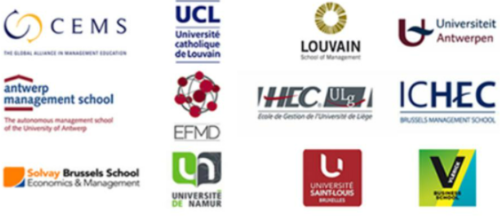
Corporate partners & contributors
